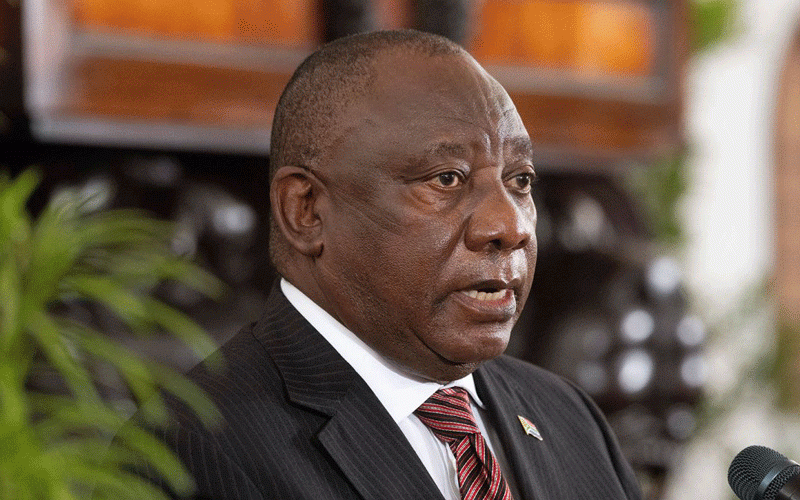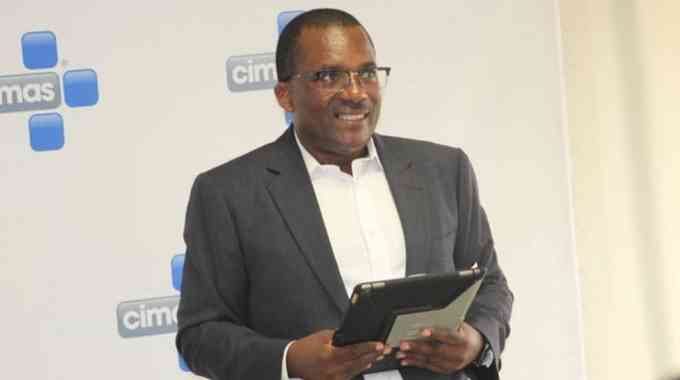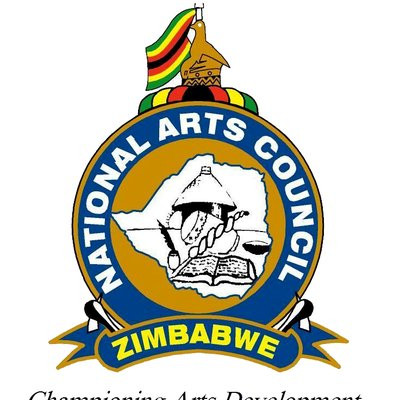
POLITICAL stability in South Africa, the Sadc region’s largest economy and superpower is of fundamental importance for various socio-political reasons.
South Africa is a leader in the Sadc region to whom not only other States, but citizens also look up to for guidance and leadership.
The social, economic, and political challenges facing most countries in Sadc demands South Africa’s attention and undiluted focus.
It is in this context that matters affecting South Africa and its stability are of vital importance to everyone around particularly its neighbors.
The ongoing Phala Phala matter involving President Cyril Ramaphosa is, therefore, a matter of particular interest beyond South African borders as its consequences on the presidency of Ramaphosa may have a serious impact on stability and development on the region. This is, therefore, not a simple national issue; it is of greater magnitude than the confines of the South African borders.
This note, therefore, seeks to unpack the current ongoings in South Africa involving the Phala Phala matter with particular attention to the recently-released panel report on the possible misconduct of Ramaphosa. The note is intended to clarify and explain, for an outside audience, the factual and legal processes and implications of the current events.
I must start by stating that this note has been necessitated by the fragrant abuse of facts and wanton misinformation that is taking place in the mainstream media. Although this is quite unfortunate, it is to be expected given the current political contest in South Africa.
The Phala Phala matter
- Zim headed for a political dead heat in 2023
- Record breaker Mpofu revisits difficult upbringing
- Tendo Electronics eyes Africa after TelOne deal
- Record breaker Mpofu revisits difficult upbringing
Keep Reading
Although the details are still scant at the point, the summary of the Phala Phala matter is that some money, in foreign currency, stored at Ramaphosa’s farmhouse was stolen in February 2020. Broadly, allegations arising from this matter are whether this money was legitimate income that does not violate the laws of the republic and whether State resources were unduly employed to investigate the matter and recover the money without reporting the matter to the police as required by the law.
Ramaphosa contends that the money at the farm was proceeds from the sale of game and that the theft was in essence reported to the police providing protection to him.
There are many State agencies investigating this matter and all of them have not provided any report yet. This may, significantly, show how complicated the matter may be and how the allegations in the public domain are not backed by factual information on the ground. A lot of fabricated propaganda has also been thrown on the streets and is making it difficult to separate truth from fiction.
Parliamentary impeachment
However, instigated by opposition political parties, Parliament has set out its own process towards the impeachment of the President if any serious misconduct is found on his part. Section 89 of the South African Constitution states the following on the removal of the President:
- (1) The National Assembly, by a resolution adopted with a supporting vote of at least two-thirds of its members, may remove the President from office only on the grounds of — (a) a serious violation of the Constitution or the law; (b) serious misconduct; or (c) inability to perform the functions of office.
Parliament has set up a panel in terms of rules on the removal of the President from office adopted in 2018. It is this panel’s recommendations released on December 1 that are the focus of this note.
Section 89 Panel
In terms of the Rules of Parliament, a three-step process has been established for the impeachment of the President under S89 of the Constitution. Firstly, a panel is established to make a recommendation on whether sufficient evidence exists to show that the President: (i) committed a serious violation of the Constitution or law; (ii) committed a serious misconduct; or (iii) suffers from an inability to perform the functions of Office. Of course, no capacity is at issue in this matter.
The second step is the parliamentary impeachment committee inquiry. The third step is the decision by the National Assembly through a vote.
Unpacking the panel’s report
The panel has made the following findings:
- In light of all the information placed before the panel, we conclude that this information discloses, prima facie, that the President may have committed:
264.1. A serious violation of sections 96(2)(a).
264.2. A serious violation of section 34(1) of Precca.
264.3. A serious misconduct in that the President violated section 96(2)(b) by acting in
a way that is inconsistent with his office.
264.4. A serious misconduct in that the President violated section 96(2)(b) by exposing himself to a situation involving a conflict between his official responsibilities and his private business. of the Constitution.Whilst the President is considering his options on this report, it must be noted that this is the first time that the Parliamentary Rules established in 2018 on the process of impeaching the President have been applied. Knowledge and jurisprudence is, therefore, still largely limited as the rules have not been tested yet. What exists now are various legal and social media opinions.
Suffice it to say that it would be disappointing and irresponsible for Ramaphosa, a well-rooted leader, to simply resign and walk away plunging the young democracy into disarray. A democratic developmental State like South Africa will benefit more from a process of review and validation of the process and views of the panel by the courts, for posterity.
The panel report is merely an opinion on untested information. It cannot be in the interests of the rule of law and justice for anyone to demand his resignation before the evidence is tested. This is primarily because the panel is not empowered to hear oral evidence and is confined to information provided by Members of Parliament who are essentially opposition political parties.
Certainly, there is little benefit for a developing country to be plunged into the UK type hiring and firing of leaders considering the vulnerability of developing democracies. Even in the UK, the effects have been devastating. The ANC seems to be overdoing it ever since it started with former President Thabo Mbeki. The purpose of the impeachment process should be read as a tool to strengthen democracy and not weaken it by creating an avenue for instability. The drafters of the Constitution could never have intended that the impeachment process in s89 be some movie type television show of Game of Thrones.
In this quest and for public benefit I point out the following in relation to the panel report:
l There is misinformation and misconception that the panel actually found the President guilty and decided his fate. This is not correct. The panel has no such mandate. The purpose of this panel is simply to recommend to Parliament whether the impeachment process should start. Therefore, the purpose of the panel inquiry is simply to avoid frivolous impeachment processes by imposing an onerous duty on those who allege.
l The panel report will therefore be presented in Parliament. It is Parliament that will make the final decision whether to adopt it or not. The rules in s129 clearly state that, ‘The Assembly will make the final and binding decision relating to any matter dealt with in this rule. (2) Any recommendation made by the independent panel or the Impeachment Committee or any decision made by the Speaker in terms of this rule is not final and binding on the Assembly, including on any decision the Assembly intends to make in terms of this rule.”
l The nature of this process in essence requires the permission of the ANC for its MPs to agree with the panel’s report and vote in favour of it. In short therefore, whether this process is heading anywhere or not depends on the directive the ANC will give to its MPs. In my view, there is no need to jump the gun when there is still a chance to ventilate the matters and establish if indeed the President had any serious violation of the Constitution or misconduct. We are now in 2022, this Phala Phala allegedly happened three years ago. The urgency at this juncture is just political play with little to do with broader national interest.
l Even if the panel’s report is accepted at this point, what will follow is the second phase of a protracted impeachment process that may span into years judging by recent Parliamentary inquiries. There are many people Parliament will need to call — to truly establish the veracity of the Phala Phala claims.
l Even the Impeachment Committee recommendations are not binding on the National Assembly as an impeachment of the President will still take place after being endorsed by a two-thirds majority of parliamentarians in terms of s89 of the Constitution. Again, unless the ANC agrees, there is no chance on the impeachment seeing the light of day. In any case, it’s hard to see the ANC turning itself into an opposition party against itself.
l The panel did not state that “sufficient evidence exists” that the President committed a misconduct. Instead, it decided to concoct its own mandate and concluded that:
In light of all the information placed before the panel, we conclude that this information discloses, prima facie, that the President may have committed:
In my view, it either overstepped its mandate or neglected it. The panel is not established to make assumptions as it did to say the President “may have”. It is required to state whether “sufficient evidence exists”. Therefore, the panel is restricted to stating whether there is such sufficient evidence or not. The members must provide proof of the standard beyond reasonable doubt that a violation or misconduct was committed. It cannot speculate if it has no such standard of information.
l The panel clearly states that there are so many “gaps” and contradictions in the information before it. In essence it admits that it was either confused or could not tell. It therefore could not have reached the conclusion that there was sufficient evidence that the President committed serious misconduct or violation.
l The panel misdirected itself by concluding that the terms ‘information’ and ‘evidence’ mean the same thing in terms of the rules. Whereas the panel is empowered to receive “information” it is required to determine whether there is “sufficient evidence”.
The drafters were alert that whereas the panel may receive various kinds of information, this information must be tested in terms of the rules of evidence. This panel conflated information and evidence and arrived at conclusions not supported by its own analysis of the information before it.
l The panel misdirected itself by equating its mandate to that of the panel on the removal of the Public Protector from office. Whereas the Public Protector Panel is required to establish whether a prima facie case exists, this s89 Panel is required to establish whether on the information before it, “sufficient evidence exist”. The bar and standard are completely different.
The s89 bar is fundamentally higher than that of a prima facie case in that the panel has to establish based on the information before it whether it would convict the President.
l The Panel must establish whether there is sufficient evidence that the President committed “serious misconduct”. It is not just misconduct. The drafters of the Constitution required seriousness fully conscious that impeachments must be considered in the light and the life of the whole nation and not to be the order of the day.
It does not mean that the President may not be challenged or prosecuted for misconduct, but it is only serious misconduct that should invite an impeachment. The rules define the phrase “serious violation of the Constitution or the law” to mean “behaviour by the President amounting to an intentional or malicious violation of the Constitution or the law performed in bad faith”. Similarly, “serious misconduct” is defined to mean “improper behaviour performed by the President in bad faith”.
The panel’s view of the seriousness required in this context is problematic as it does not explain how the President’s conduct falls into the seriousness of these definitions.
In conclusion, therefore, I posit that it is in the interest of democracy and good governance; stability in the Sadc region; and the development of our young democracies that Ramaphosa should not resign without allowing a process for the ventilation of the rule of law and legalities involved in the Phala Phala matter. Parliament, at least, must be given an opportunity to decide consider this panel report.
This will serve a better purpose than resigning over an old story that has no tangible impact on the country today.
ANC congress
The ANC Congress in December has created fertile ground for political bickering, mudslinging and all kinds of strategies for political maneuvering. How much of this matter falls into this fiasco is not rocket science.
Ramaphosa has been nominated by about more than two-thirds of ANC branches across the country. He has looked well set and in no doubt to be retaining his position for a second term. In essence, barring an act of God, he will be re-elected for a second term.
There is no doubt therefore that the competitive political environment demands a lot more from his political foes and rivals.
More importantly in the broader scheme of things we are at a stage where nominations for positions have taken place and the two contenders for the Presidency have emerged.
The technical elimination of Ramaphosa from the race at this point creates an unprecedented situation where the acting President would be the current deputy President who has not been nominated to retain his own position at the ANC congress which is 12 days away from now.
On the other hand, it also creates a situation where the only remaining contender, Zweli Mkize, may automatically be elected as President with a very weak mandate having received no more than one-third of nominations from the branches of the ANC.
Of course, there remains an opportunity that another candidate may be nominated from the floor at the congress, but still, that is essentially microwave cooking a long, tedious and well involved process that started some months ago and has already reached its conclusion. It will undoubtedly throw the ANC and South Africa into disarray.
There is no doubt that the situation in the country does not like it and if the market indicators on December 1, 2022 rumoured possible resignation of Ramaphosa are anything to go by, then the economy does not like it either.
The region and interests of democracy should be extricated from the current discord, mudslinging and competition for political power in the ANC ahead of its congress. The broader interest must be served by these impeachment processes beyond the narrow ANC factional political interests.
It should always be remembered that any instability in South Africa will affect its neighbours with a more than double return to sender effect on South Africa.











